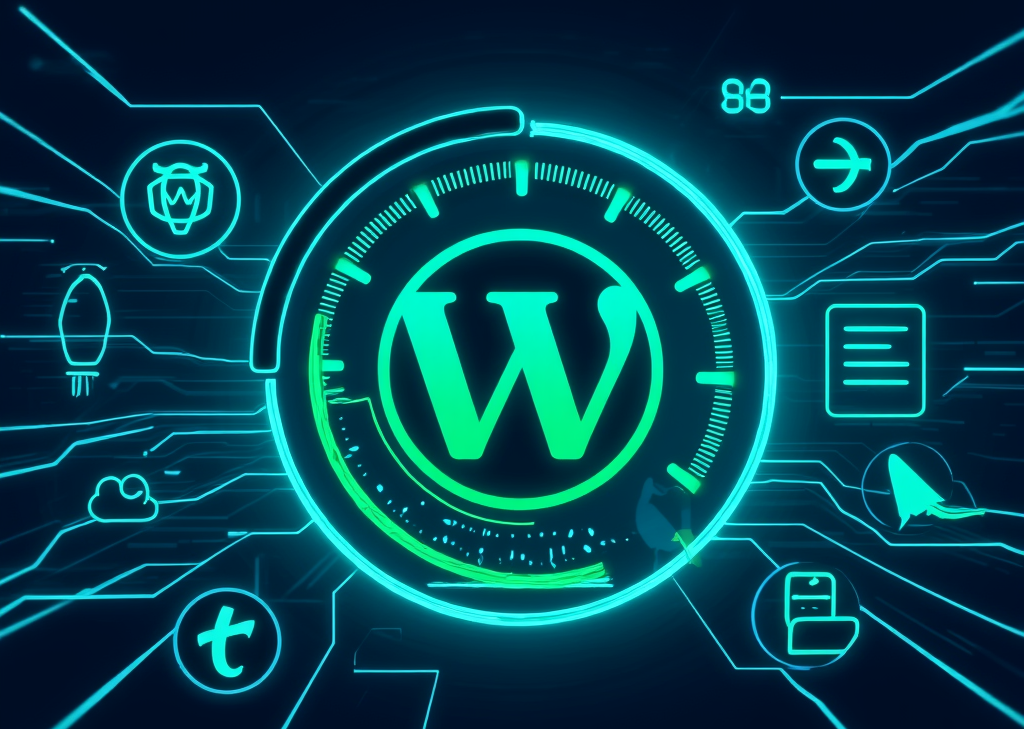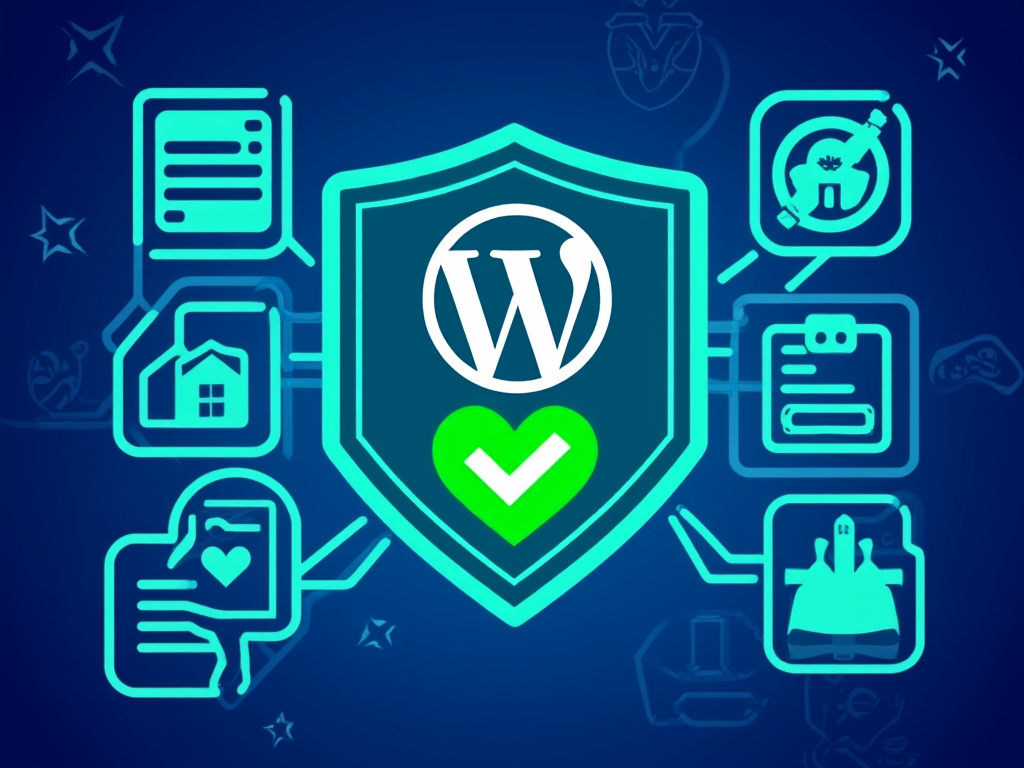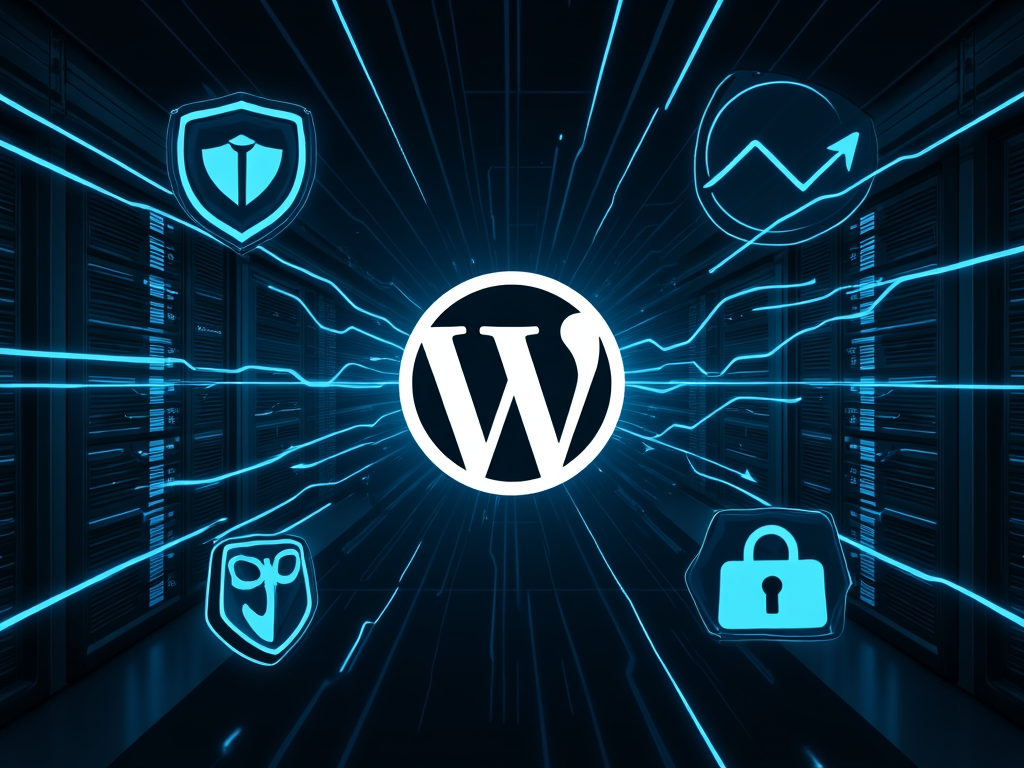<h1>WordPress site speed: optimization tips</h1>
---
<b>Meta Description:</b>
Boost your WordPress site speed with expert optimization tips. Learn how to improve loading times, enhance user experience, and boost SEO rankings.
---
<h2>1. Introduction</h2>
In an era where time is currency, <b>WordPress site speed</b> has become more than a technical detail—it’s an essential cornerstone of success. Imagine this: you’ve crafted a beautiful site filled with captivating content, but three long seconds tick by as your visitors wait for it to load. Frustrating, right? A fast loading site not only invites users in but keeps them engaged, nurtures trust, and encourages them to explore your offerings.
Gone are the days when a beautifully designed website could survive on aesthetics alone. Google’s recent algorithm updates prioritize speed, making it a significant factor for SEO rankings. Websites like yours, regardless if they are blogs, e-commerce shops, or company showcases, must provide rapid and smooth experiences.
---
<h2>2. Why WordPress Site Speed Matters</h2>
Consider how users interact with your site. Research reveals that a staggering 53% of mobile users abandon sites taking longer than three seconds to load. And what about those dreadful bounce rates? A single second delay can decrease conversions by up to 7%.
Here’s a glimpse of the impact of site speed—impressive statistics to ponder:
<ul>
<li>Just 79% of visitors who experience a slow-loading page are unlikely to return.</li>
<li>A 1-second delay in load time can result in a striking 16% decrease in customer satisfaction.</li>
</ul>
These figures don’t just tell a tale; they scream that your site speed is vital—not just for your visitors, but for your business as a whole.
---
<h2>3. Essential WordPress Site Speed Optimization Tips</h2>
Let’s dive deep into practical strategies that will transform your WordPress site from sluggish to speed demon. Here’s a toolkit of essential techniques:
<h3>3.1. Choose a Fast, Lightweight Theme</h3>
<b>Why it matters:</b> Your theme is the foundation of your site; a bloated one can drag your performance down.
<b>Best practices:</b>
<ul>
<li>Opt for themes designed with speed in mind, like <i>Astra</i> or <i>GeneratePress</i>.</li>
<li>Steer clear from themes packed with flashy animations and excessive layouts.</li>
<li>Run performance tests on new themes using tools such as <a href="https://developers.google.com/speed/pagespeed/insights/">Google PageSpeed Insights</a>.</li>
</ul>
<b>Image:</b> Astra is crafted for efficiency, merging aesthetics with remarkable speed.
<h3>3.2. Optimize Images</h3>
<b>Why it matters:</b> Large, high-resolution images can significantly impede loading times.
<b>Best practices:</b>
<ul>
<li>Compress your images using tools like <i>TinyPNG</i> or <i>ShortPixel</i>.</li>
<li>Adopt modern formats, like <i>WebP</i>, for superior compression without losing quality.</li>
<li>Ensure images are appropriately sized before uploading—no oversized files!</li>
</ul>
<b>Example:</b> Compressing a 2MB image down to 200KB results in a staggering 90% reduction in load times.
<h3>3.3. Use a Content Delivery Network (CDN)</h3>
<b>Why it matters:</b> A CDN boosts performance by distributing your website’s assets across servers worldwide.
<b>Best practices:</b>
<ul>
<li>Integrate reliable CDNs like <i>Cloudflare</i> or <i>StackPath</i>.</li>
<li>Enable caching of static assets like images and CSS files through your CDN.</li>
</ul>
<b>Example:</b> Even Cloudflare’s free plan provides excellent CDN functionality for enhancing load times.
<h3>3.4. Implement Caching</h3>
<b>Why it matters:</b> Reduce server strain by serving static cached files instead of querying the database each time.
<b>Best practices:</b>
<ul>
<li>Adopt caching plugins such as <i>WP Rocket</i> or <i>W3 Total Cache</i>.</li>
<li>Enable both browser caching and object caching to amplify performance.</li>
</ul>
<b>Example:</b> WP Rocket simplifies setup even for newcomers while delivering profound speed enhancements.
<h3>3.5. Minify and Combine CSS/JavaScript</h3>
<b>Why it matters:</b> Reducing file sizes by eliminating unnecessary characters can lead to quicker load times.
<b>Best practices:</b>
<ul>
<li>Use well-known plugins like <i>Autoptimize</i> for minification of CSS and JavaScript files.</li>
<li>Combine files to limit HTTP requests, reducing overhead and improving load speeds.</li>
</ul>
<b>Example:</b> A case study shows minifying a 100KB CSS file could yield a 20-30% size reduction.
<h3>3.6. Optimize Your WordPress Database</h3>
<b>Why it matters:</b> Over time, your database gathers clutter that slows down query responses.
<b>Best practices:</b>
<ul>
<li>Utilize plugins like <i>WP-Optimize</i> to cleanse unnecessary data from your database.</li>
<li>Regularly optimize database tables for improved speed and efficiency.</li>
</ul>
<b>Example:</b> A tidy database can enhance query performance by up to 50%.
<h3>3.7. Limit and Optimize Plugins</h3>
<b>Why it matters:</b> Every plugin you install adds potential lag to your site, especially if they’re poorly coded.
<b>Best practices:</b>
<ul>
<li>Decommission and purge unnecessary plugins.</li>
<li>Select lightweight, highly-rated plugins that serve their purpose without excessive resource consumption.</li>
<li>Audit performance regularly with tools like <i>Query Monitor</i>.</li>
</ul>
<b>Example:</b> Just by clearing out 5 non-essential plugins, one could see immediate time savings of 1-2 seconds in load speed.
<h3>3.8. Use the Latest PHP Version</h3>
<b>Why it matters:</b> Keeping your PHP version current can profoundly impact speed and security.
<b>Best practices:</b>
<ul>
<li>Upgrade to PHP 8.0 or higher, ensuring compatibility with all themes and plugins.</li>
</ul>
<b>Example:</b> Upgrading to PHP 8.0 can deliver an astonishing 20% speed boost compared to older versions.
<h3>3.9. Enable Lazy Loading</h3>
<b>Why it matters:</b> Lazy loading defers the loading of non-critical elements, enhancing initial load time.
<b>Best practices:</b>
<ul>
<li>Utilize the native `loading="lazy"` attribute for images.</li>
<li>Consider plugins like <i>Lazy Load by WP Rocket</i> for comprehensive management.</li>
</ul>
<b>Example:</b> Lazy loading can shave off 30-50% of initial load time on content-rich pages.
<h3>3.10. Reduce External HTTP Requests</h3>
<b>Why it matters:</b> Each external resource contributes to loading delays, impacting the user experience.
<b>Best practices:</b>
<ul>
<li>Reduce reliance on third-party scripts when possible.</li>
<li>Host fonts locally rather than relying on external sources.</li>
<li>Limit on-page widgets and embeds.</li>
</ul>
<b>Example:</b> Cutting external requests from 20 to 10 might reduce load time by as much as 1-2 seconds.
<h3>3.11. Optimize CSS Loading</h3>
<b>Why it matters:</b> Efficiently loaded CSS can greatly reduce paint times.
<b>Best practices:</b>
<ul>
<li>Inline crucial above-the-fold CSS.</li>
<li>Defer loading of non-essential CSS.</li>
<li>Employ optimizers like <i>Autoptimize</i> or <i>WP Rocket</i> to streamline CSS management.</li>
</ul>
<b>Example:</b> Incorporating critical CSS can enhance First Contentful Paint by up to 50%.
<h3>3.12. Use a Fast Hosting Provider</h3>
<b>Why it matters:</b> Your hosting provider's performance can either be a booster or a barrier to your site’s speed.
<b>Best practices:</b>
<ul>
<li>Seek out managed WordPress hosting, such as <i>WP Engine</i> or <i>SiteGround</i>.</li>
<li>Prioritize hosts offering SSD storage and built-in caching mechanisms.</li>
</ul>
<b>Example:</b> Quality managed hosting can dramatically decrease Time to First Byte (TTFB) by up to 90%.
---
<h2>4. Advanced WordPress Speed Optimization Techniques</h2>
For the tech-savvy or those on a mission to trim every millisecond, we’ll touch upon advanced strategies that can transform your site:
<ul>
<li><b>Defer JavaScript:</b> Load non-essential JavaScript post-rendering to enhance perceived speed.</li>
<li><b>Preload Key Requests:</b> Use the `preload` attribute on critical elements to prioritize loading.</li>
<li><b>Optimize SQL Queries:</b> Tools like <i>Query Monitor</i> can uncover bottlenecks in database queries.</li>
<li><b>Enable HTTP/2:</b> It significantly enhances delivery efficiency by allowing multiple requests through a single connection.</li>
<li><b>Fix HTTPS/SSL Errors:</b> A correctly configured SSL certificate avoids avoidable delays.</li>
</ul>
<b>Additional Phrases:</b> WordPress performance optimization, site speed improvement, advanced WordPress optimization
BEST OFFERS:
Do you want to create your own company website or create your own online business on the Internet?
– WEB HOSTING
– DOMAIN REGISTRATION
– WEB DEVELOPMENT
– SITE BUILDER



“`html
5. Regular Monitoring and Maintenance
Once you’ve implemented the various optimization techniques, ongoing monitoring is essential. Site speed isn’t a “set it and forget it” scenario; regular checks are vital to ensure your optimizations continue to benefit your visitors.
5.1. Use Performance Monitoring Tools
Why it matters: Monitoring tools provide insights into your site’s performance over time.
Best practices:
- Incorporate monitoring tools like Pingdom or GTmetrix to get regular updates.
- Schedule performance audits at least once every quarter to catch any slowing trends.
Example: A monthly review of your site’s speed can help identify new issues before they become major concerns.
6. Leveraging Performance Metrics
Understanding and leveraging performance metrics is another cornerstone of speed optimization. Metrics reveal how well your site operates and how user experience is affected.
6.1. Core Web Vitals
Why it matters: Google’s Core Web Vitals are crucial aspects that affect your SEO standings. They measure loading performance, interactivity, and visual stability.
Essentials include:
- Largest Contentful Paint (LCP): Aiming for LCP under 2.5 seconds is optimal.
- First Input Delay (FID): Strive for less than 100 milliseconds for an interactive experience.
- Cumulative Layout Shift (CLS): Keep this score under 0.1 to avoid layout shifts during user interactions.
Example: Tools like web.dev can help assess these metrics, allowing you to target your optimizations effectively.
6.2. A/B Testing for Optimizations
Why it matters: Experimenting with changes enables you to discover what works best for your audience.
Best practices:
- Utilize plugins like Nelio A/B Testing to set up tests easily.
- Test one change at a time to get clear results without confusion.
- Gather and analyze data to inform your next steps with confidence.
Example: Testing variations on page loading strategies can help identify what keeps visitors engaged longer.
7. Final Thoughts: Creating a Culture of Speed
Optimizing your WordPress site speed isn't just a one-off project; it’s an ongoing culture that you will cultivate as a site owner. Delay can cost you precious engagement and conversions; thus, creating an atmosphere that values speed can profoundly influence your site's success.
7.1. Continuous Learning and Adaption
Take the time to stay informed about emerging technologies that might influence loading speeds, such as new image formats or JavaScript frameworks. Web performance is a dynamic field, evolving with user expectations and technological advancements.
7.2. Community Engagement and Resources
Engage with communities and follow resourceful blogs that focus on WordPress performance. Websites like WPBeginner or WP Rocket Blog often share valuable insights and updates.
8. Wrapping Up
Enhancing your WordPress site speed is a multi-faceted endeavor but one that is richly rewarding. By integrating the strategies outlined, leveraging performance metrics, and adopting a mindset of continuous improvement, your site can realize vast gains in user experience, satisfaction, and ultimately, conversions. A speedy site is not just about metrics; it’s an investment in your audience’s experience—every second saved is a potential client gained.
Useful Video Resources:
- For additional insights into improving WordPress speed, check out these enlightening videos:
Additional References:
- WP Beginner: WordPress Performance
- Kinsta: Speed Optimization for WordPress
- WP Rocket: Improve Website Speed
“`
FINDDOMAIN.GE (Internet services LLC) is a very interesting and rapidly developing IT company. The main directions are: web development, domain and web hosting. It also offers clients sub-services and outsourcing related to the main services.
BEST OFFERS:
Do you want to create your own company website or create your own online business on the Internet?
– WEB HOSTING
– DOMAIN REGISTRATION
– WEB DEVELOPMENT
– SITE BUILDER








